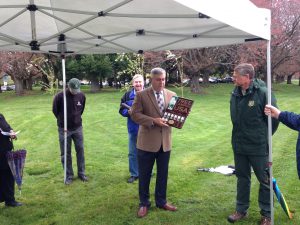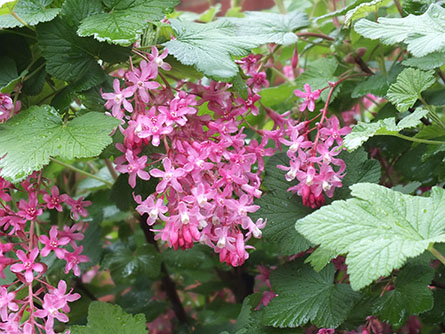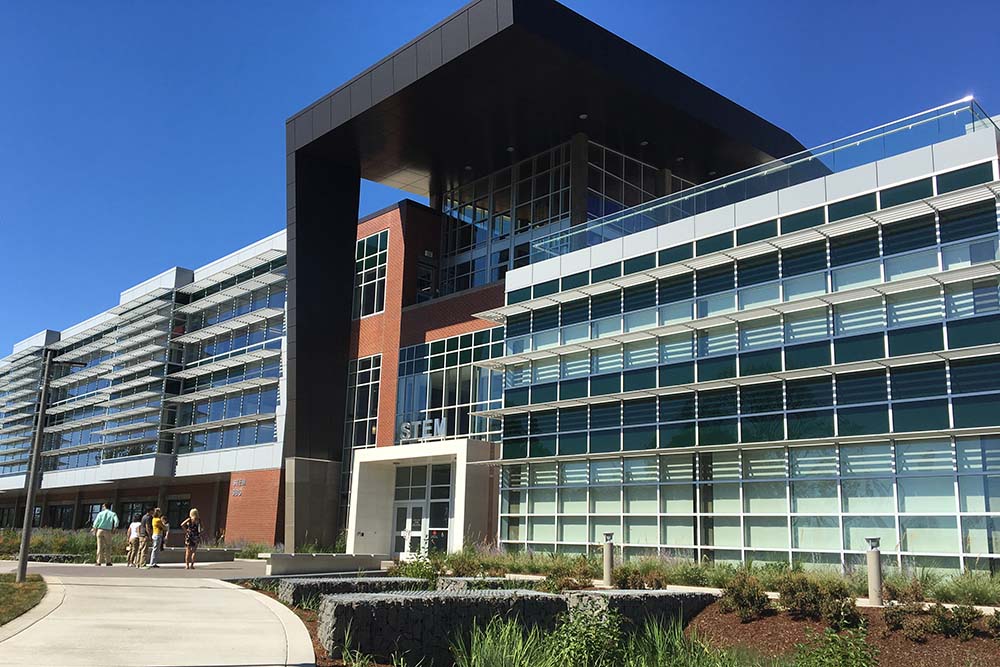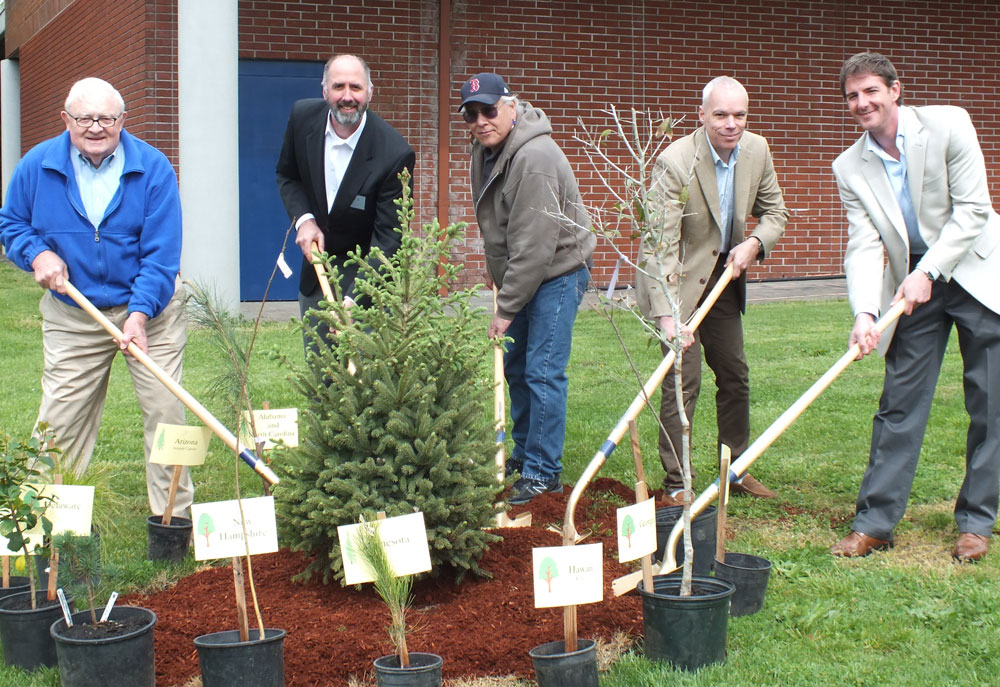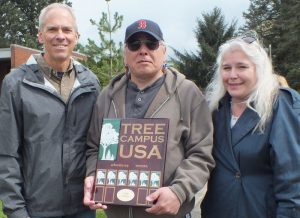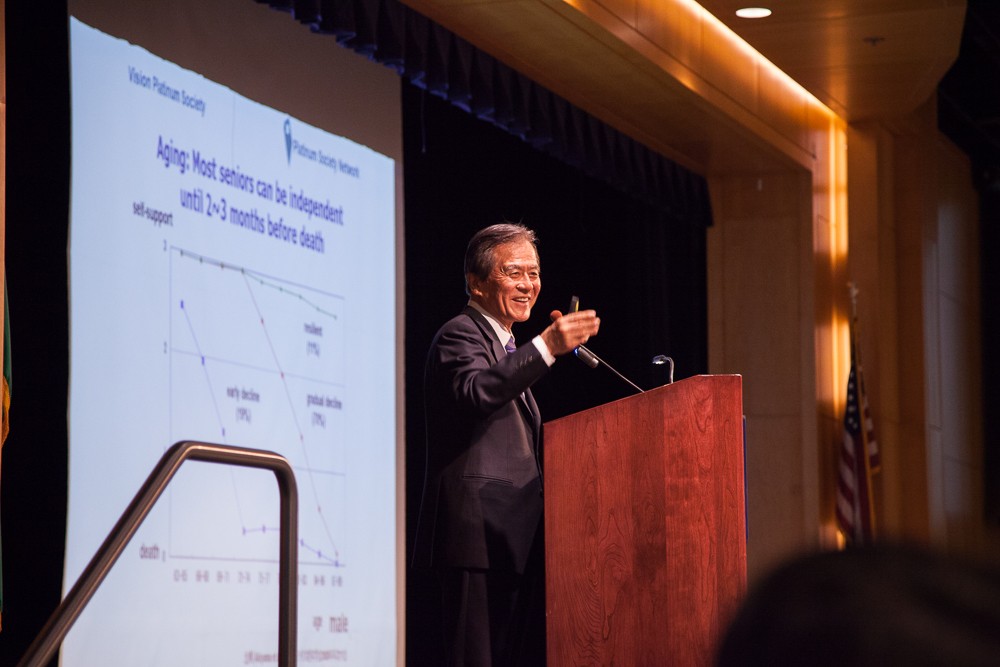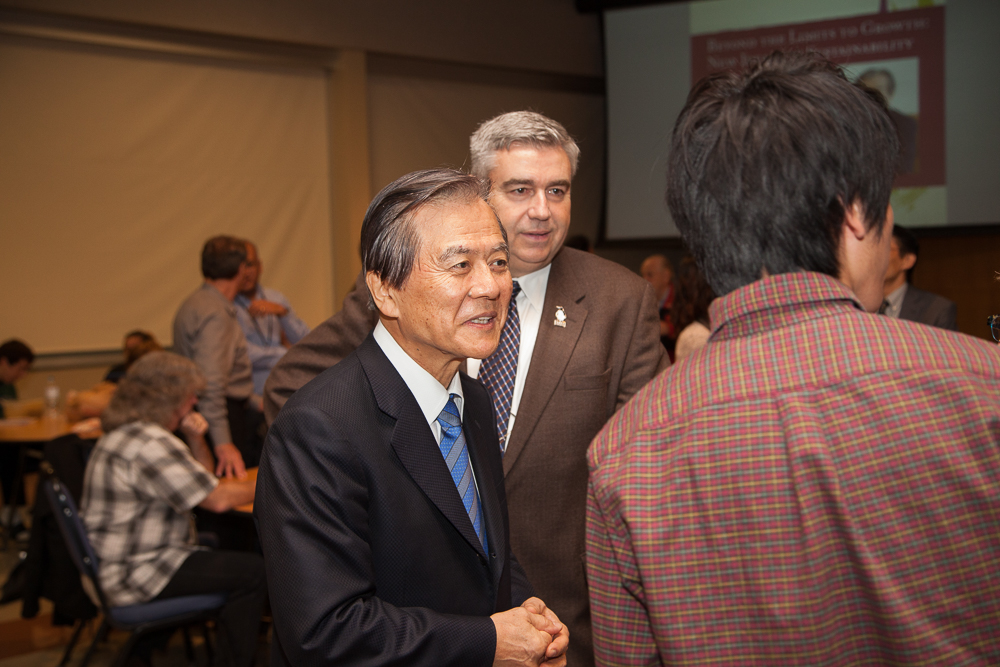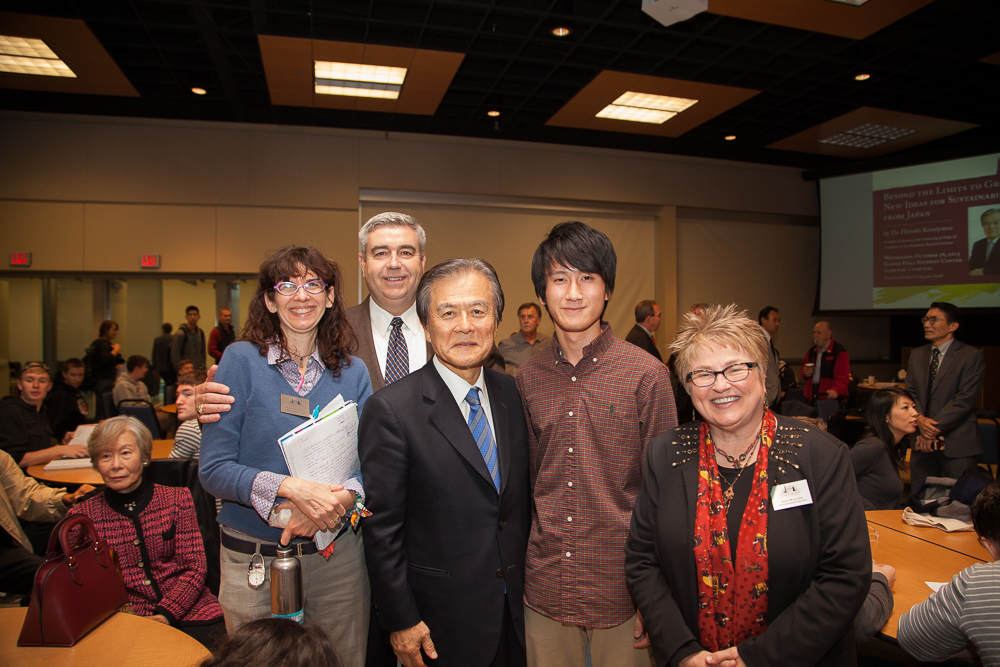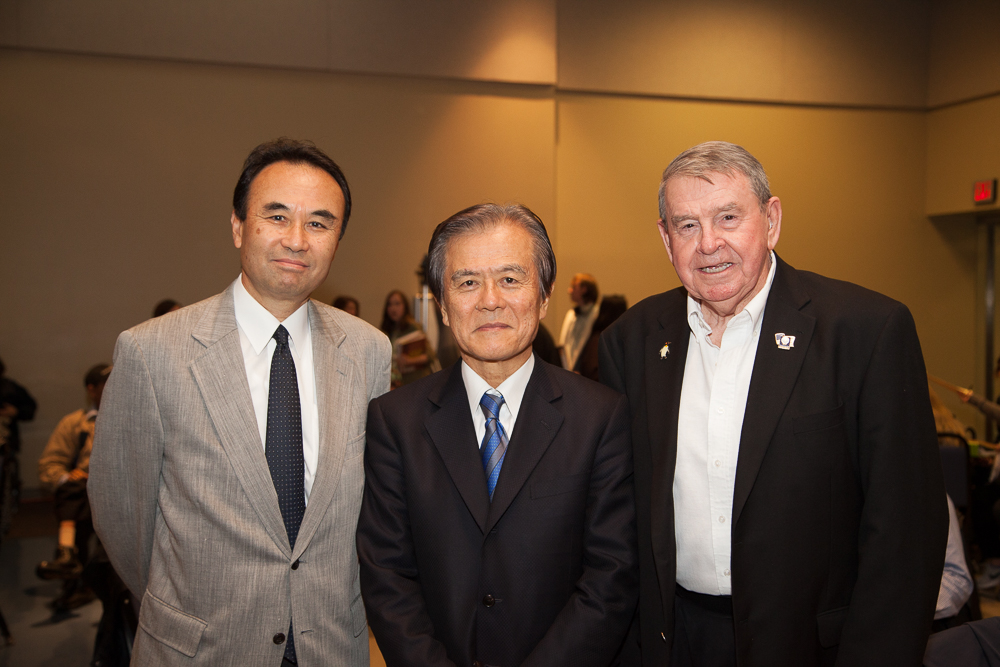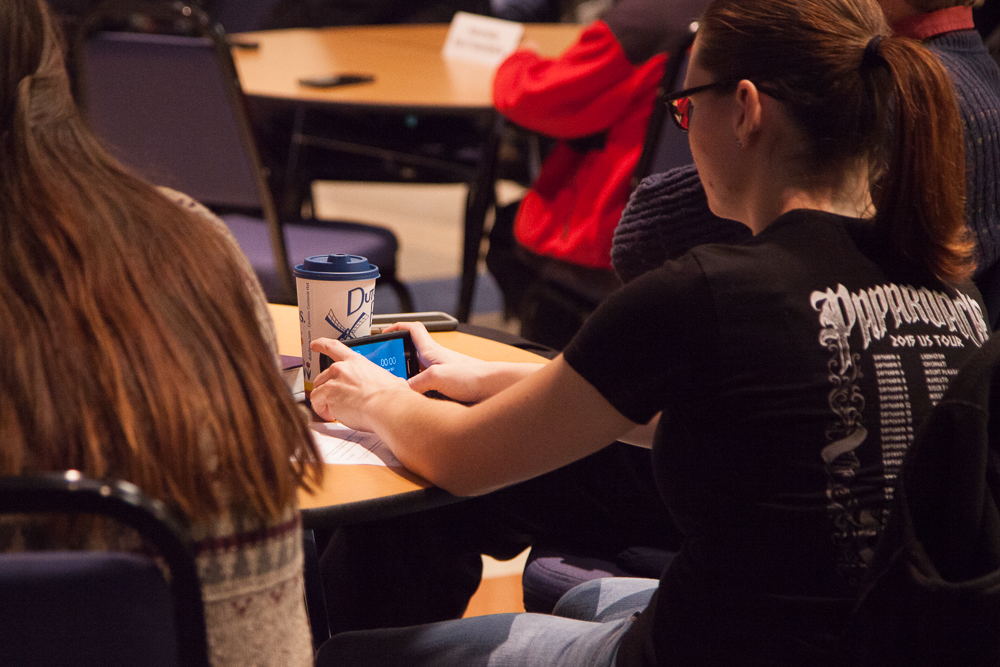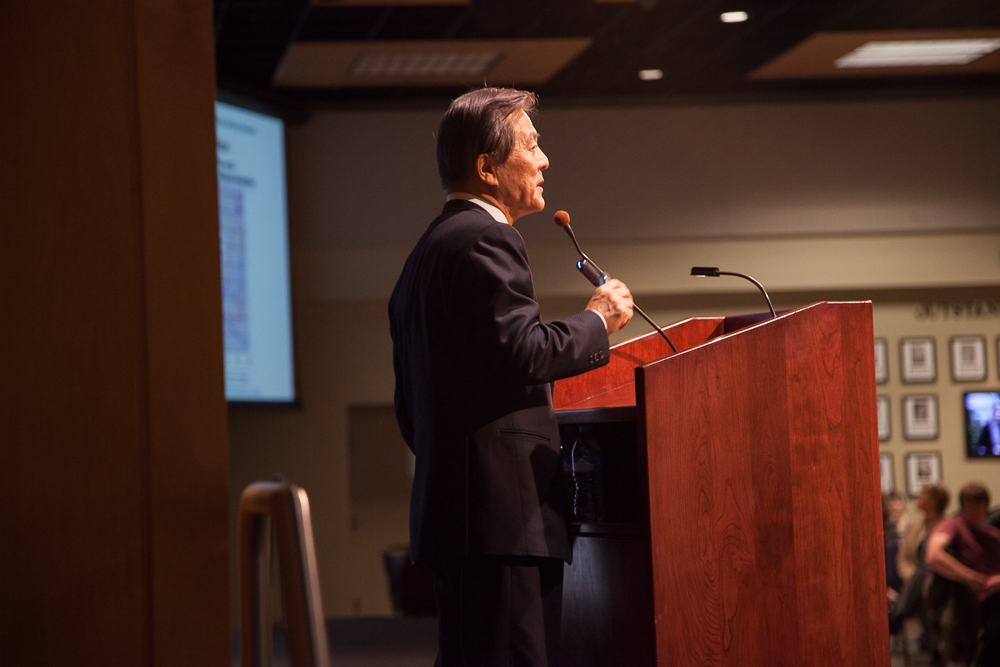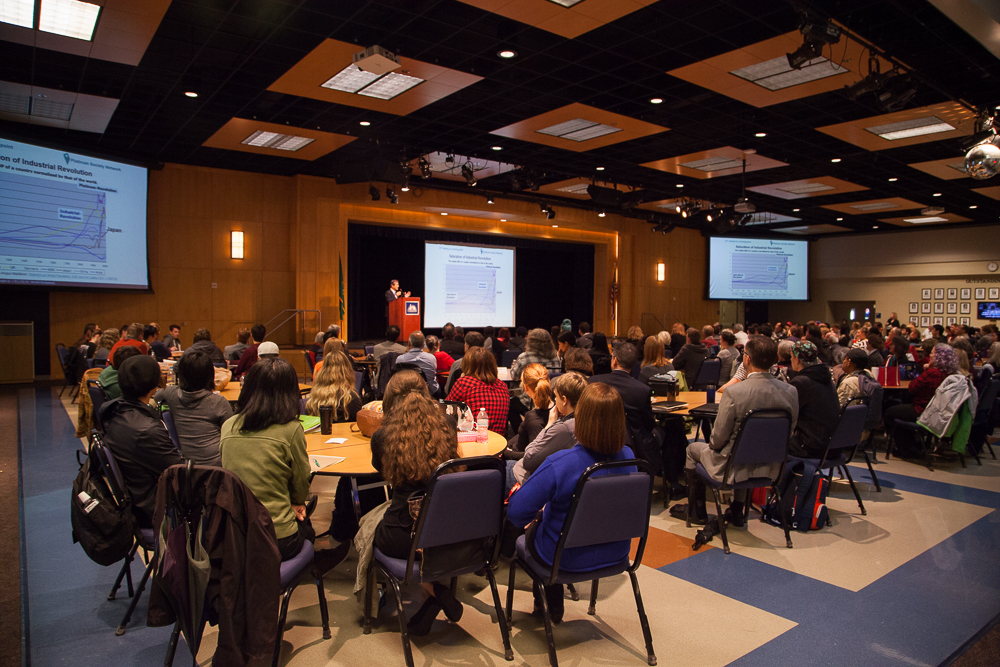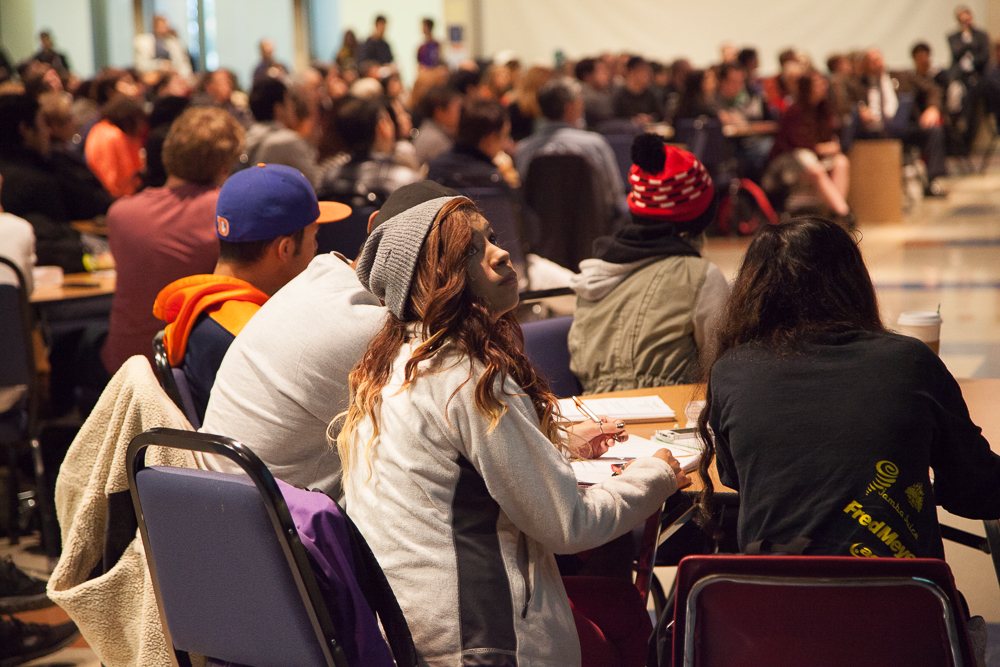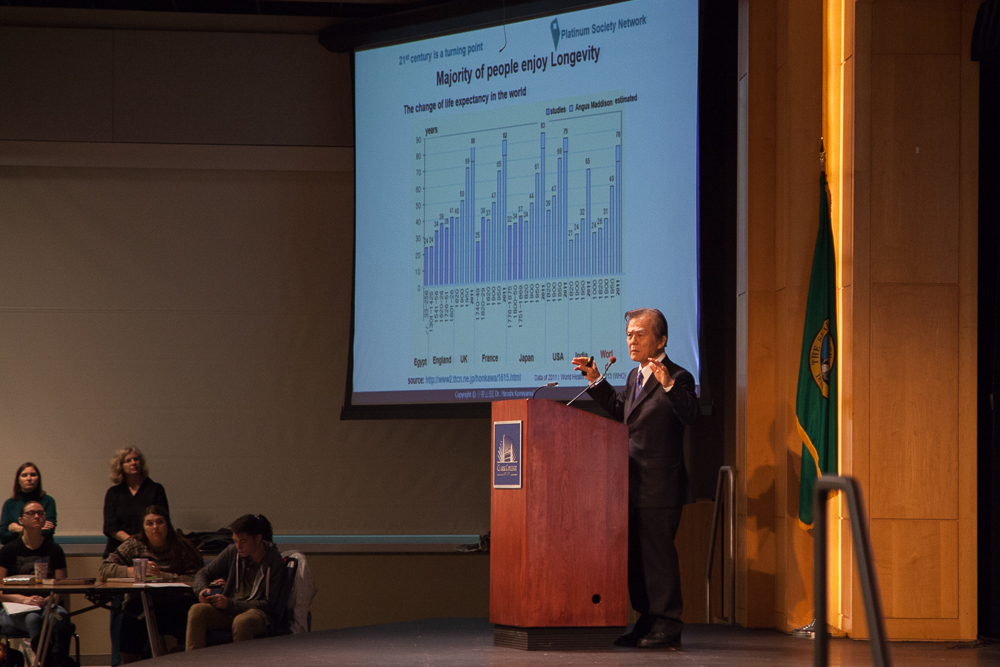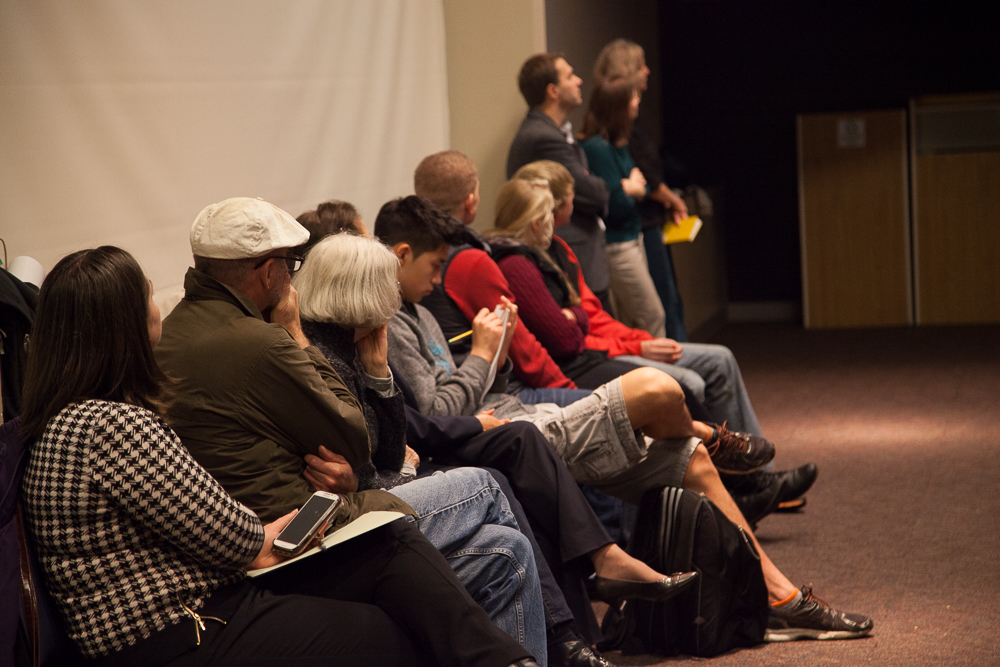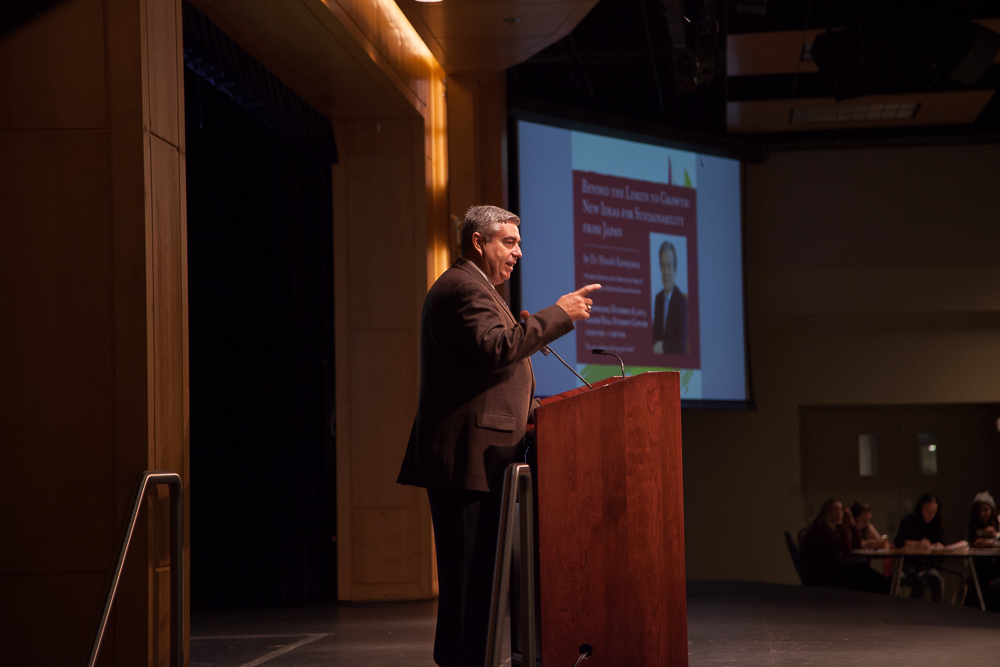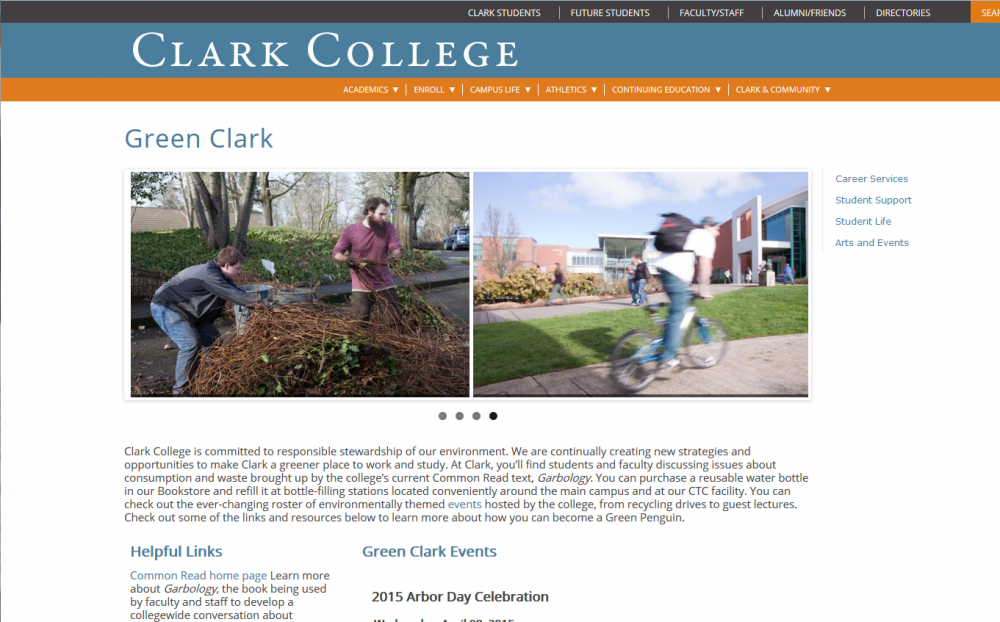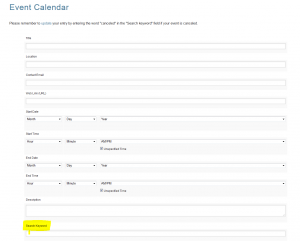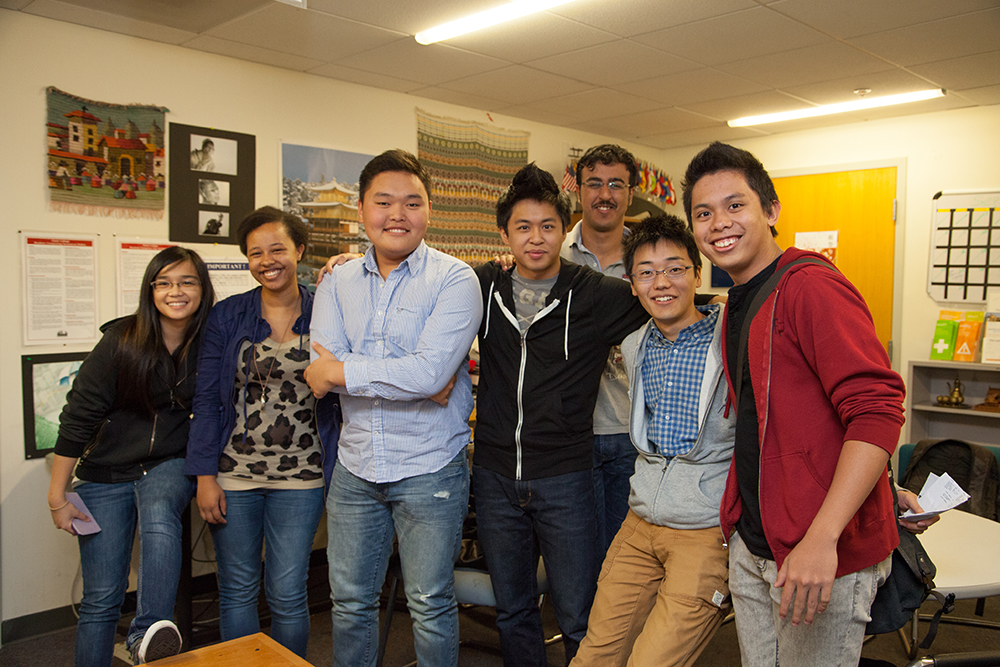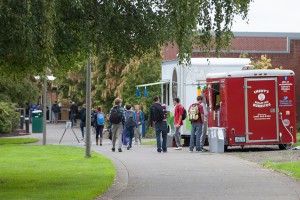The gift of friendship and trees
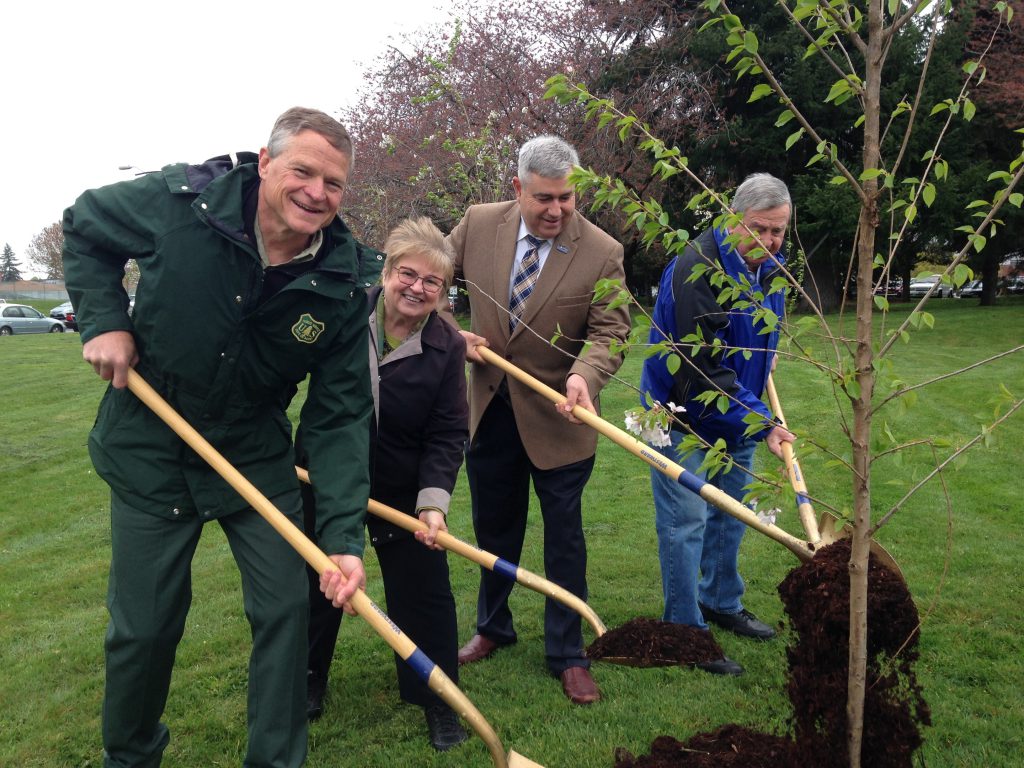
Members of the Clark community help plant a Yoshino cherry tree at the 2018 Arbor Day celebration. Left to right: US Forest Service officer Dave Olson; International Programs director Jane Walster; Clark College president Bob Knight; and Clark College trustee Royce Pollard.
On April 11, Clark College celebrated tree planting and care at the annual Arbor Day celebration. Led by Clark College International Programs director Jane Walster, the ceremony took place on the northeast corner of Fort Vancouver Way and McLoughlin Boulevard.
The theme of this year’s event was “The Gift of Friendship.” At the ceremony, Clark trustee and former mayor of Vancouver Royce Pollard announced the gift of 200 new Somei Yoshino flowering cherry trees donated by Tatsuo Ito of SEH America, a Japanese manufacturing company in Vancouver. The new cherry trees—along with the 100 Shirofugen cherry trees donated more than 25 years ago—act as symbols of the college’s enduring friendship with Japan.
According to Tim Carper, a member of the Campus Tree Advisory Committee, 100 of the donated trees were planted prior to the ceremony, including 20 trees at Clark’s Columbia Tech Center location, and the college is determining where the remaining 100 trees will be planted.
At the ceremony Clark College was also awarded with the Arbor Day Foundation’s Tree Campus USA designation for the eighth consecutive year. Dave Olson of the U.S. Forest Service presented the award to Clark College president Bob Knight.
The Arbor Day celebration concluded with a ceremonial planting of one of the Yoshino cherry trees donated by Ito.
Photos: Clark College/Tim Carper
